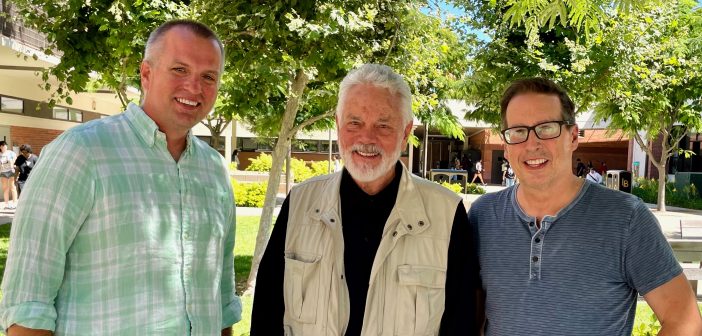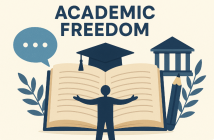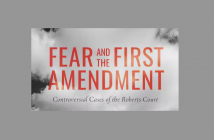Frank Snepp is a Peabody Award winning journalist and has lived an interesting life spanning from CIA spy, to being left penniless, to being a university teacher and esteemed journalist. He recently made a visit to share his experiences as a young member of the CIA and his defeat in the Supreme Court in the case of Snepp v. United States.
His message to students is that the lessons learned in media law and First Amendment courses are essential and may even save your life one day. Many students who take First Amendment and media law courses think they tend to be idealistic until they are radically confronted with legal realities in their careers and personal lives. He noted how he has had many great teachers in his own life, and how he learned many of the lessons the hard way.
His case that made it to the Supreme Court pertained to the nature and scope of security agencies to maintain power over prior restraint. In his specific case, what power does the CIA have to review works to judge whether certain material may be published by those with access to classified information?
Snepp maintains that the CIA should not have the power to review materials by former employees about the CIA if all the materials in the publication are a matter of public knowledge. In other words, leaking classified information may be a crime and that should be punished, but if a former CIA official publishes material that is not classified then the CIA should not have the power to review and/or censor that material.
The Supreme Court disagreed with Snepp’s argument, and ruled that he had breached his contractual agreement with the agency to “not . . . publish . . . any information or material relating to the Agency, its activities or intelligence activities generally, either during or after the term of [his]employment . . . without specific prior approval by the Agency.” Snepp believes that contract requirement violates his First Amendment right to publish material on matters of public concern so long as he is not sharing classified information.
The Supreme Court disagreed, and ruled against Snepp. That left him penniless. He lost all the money from his book publishing, and nobody would hire him because he was perceived as an enemy of the United States. He was shunned from all jobs immediately following the decision.
He does not believe he is an enemy of the United States. He maintains he kept all classified information classified (and still does to this day). He also maintains that he is very much an American, and even advocated for students to consider joining the intelligence community because we need smart and responsible people in the agencies in order to protect it from some of its negative impulses.
He is haunted by the way the US exited Vietnam. He recalled barely escaping Saigon and being one of the fortunate, and believes that the US failed to have a viable exit strategy. As a result, “During the last day, we played God . . . We determined who would be saved and who wouldn’t, and it was heart-wrenching. You would get one person in the family, but not the child, not the mother, not the father. We separated families in a wink . . . because we hadn’t planned adequately.”
Those who support the Supreme Court’s ruling against Snepp argue that security agencies ought to have review powers even if there isn’t any classified material because their review may prevent any accidental releases of classified information that may be otherwise released and the damage may already done.
Snepp believes that as a trained spy, he knows better than to disclose classified information, the US government entrusted him with that information, and that he should retain his First Amendment rights that other citizens are entitled to. In other words, he argues that if he is publishing based on information already available to the public, then he should have the First Amendment right to do so just like any other American.
Perhaps the best lesson is that which is passed on to the students, particularly those in the field of journalism—take the media law and First Amendment courses seriously. The stakes and the consequences are far from abstract. They are real and may save your life.




